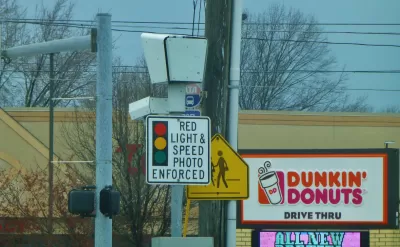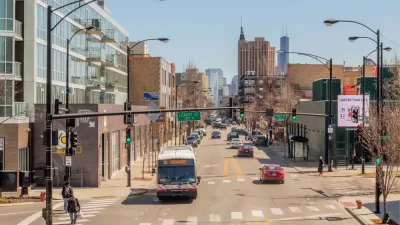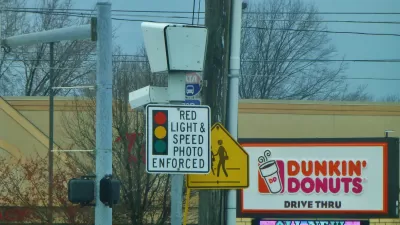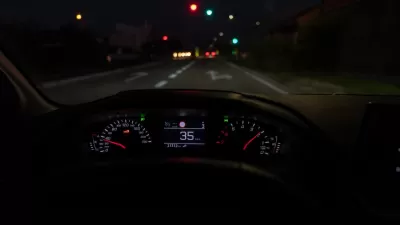A Northwestern University study found that Chicagoans ran fewer red lights after cameras were installed, even at intersections that don't have cameras.

Because of its troubled start, the red light cameras program in Chicago has been the subject of a study from Northwestern University. The study found that cameras do improve safety at intersections with cameras. "In addition to the overall finding that injury crashes dropped by 10 percent thanks to the cams, the study found that while rear-end crashes increased by 14 percent at intersections where cameras were installed, consistent with other cities, the more dangerous T-bone and/or turning crashes decreased by 19 percent," John Greenfield reports for Streetsblog Chicago. The study also found an additional benefit, "a never-before-documented 'spillover effect' that is also resulting in less red light running at intersections that don’t have the cams," Greenfield writes. The authors of the study found that fear of cameras works as a deterrent for drivers who may not know which intersections have cameras.
Shortly after Rahm Emanuel's government installed red light cameras, a massive bribery scheme was uncovered that sent one city official to jail on a ten-year sentence. The program was a big issue in the mayoral campaign for Emanuel’s reelection, with challenger Chuy Garcia vowing to remove the cameras. This study was undertaken, in part, to get an independent perspective on the cameras and gauge their impact on the city.
FULL STORY: Red Light Cams Improve Safety, Have “Spillover Effect” on Other Intersections

Alabama: Trump Terminates Settlements for Black Communities Harmed By Raw Sewage
Trump deemed the landmark civil rights agreement “illegal DEI and environmental justice policy.”

Study: Maui’s Plan to Convert Vacation Rentals to Long-Term Housing Could Cause Nearly $1 Billion Economic Loss
The plan would reduce visitor accommodation by 25% resulting in 1,900 jobs lost.

Planetizen Federal Action Tracker
A weekly monitor of how Trump’s orders and actions are impacting planners and planning in America.

Waymo Gets Permission to Map SF’s Market Street
If allowed to operate on the traffic-restricted street, Waymo’s autonomous taxis would have a leg up over ride-hailing competitors — and counter the city’s efforts to grow bike and pedestrian on the thoroughfare.

Parklet Symposium Highlights the Success of Shared Spaces
Parklets got a boost during the Covid-19 pandemic, when the concept was translated to outdoor dining programs that offered restaurants a lifeline during the shutdown.

Federal Homelessness Agency Places Entire Staff on Leave
The U.S. Interagency Council on Homelessness is the only federal agency dedicated to preventing and ending homelessness.
Urban Design for Planners 1: Software Tools
This six-course series explores essential urban design concepts using open source software and equips planners with the tools they need to participate fully in the urban design process.
Planning for Universal Design
Learn the tools for implementing Universal Design in planning regulations.
Caltrans
Smith Gee Studio
Institute for Housing and Urban Development Studies (IHS)
City of Grandview
Harvard GSD Executive Education
Toledo-Lucas County Plan Commissions
Salt Lake City
NYU Wagner Graduate School of Public Service





























